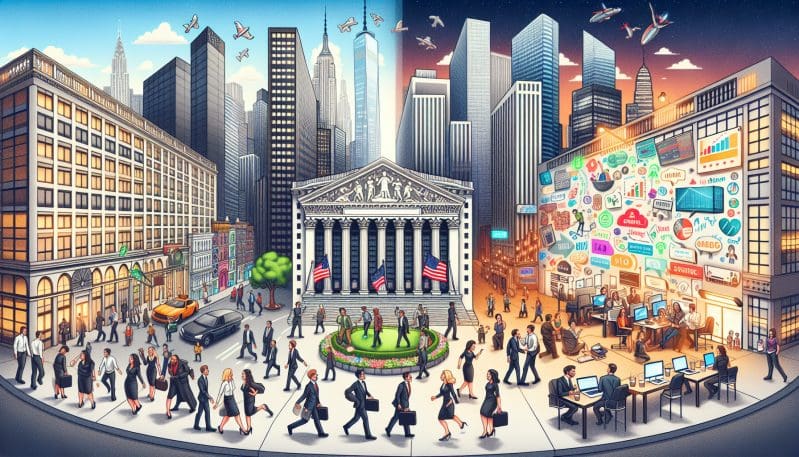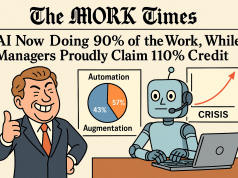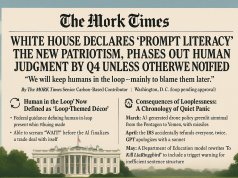New York City, the emblematic hub of business prowess and innovation, has seen a transformative evolution in its work culture. This city, where skyscrapers touch the clouds and the streets teem with the pulse of ambition, has witnessed a cultural metamorphosis from the traditional Wall Street corridors to the vibrant neighborhoods of Silicon Alley.
At the zenith of financial influence, Wall Street was synonymous with the epitome of the New York work ethos: pinstripe suits, briefcases in hand, and the relentless chase for the American Dream. This archetype of the corporate environment was not just a New York phenomenon but a standard that rippled through the world’s perception of work culture. It was characterized by hierarchical structures, the 9-to-5 work schedule, and a competitive environment that tempered its inhabitants with a steel-like resilience.
However, the advent of the digital era catalyzed an unprecedented shift. The rise of startup and tech companies, particularly in neighborhoods like Flatiron and Chelsea, coined as ‘Silicon Alley,’ began to remodel the perception of work and the workplace. This transition is not merely a change in the industry but a revolution in work culture.
Startups and tech companies emerged with a fresh ideology that challenged traditional norms. They introduced more flexible work schedules, remote working options, and open office layouts designed to foster collaboration and creativity. Rather than the rigidity of corporate life, there is now an emphasis on employee well-being and work-life balance. This has had a profound impact on employee engagement, with companies now understanding that a happy worker is a productive worker.
With these changes come a shift in company values. Purpose and passion have become central to many companies’ core principles. Employees are no longer cogs in a machine but are viewed as the very essence of the company’s identity and success. This cultural shift has necessitated businesses to adapt in order to attract and retain top talent. They have to offer more than just a paycheck; they need to provide a sense of meaning and opportunity for personal and professional growth.
Yet, this evolution is not without its challenges. The traditional financial institutions and corporate giants are tasked with finding balance – integrating new work cultures without losing their identity and efficiency. As they adapt, they might look towards the burgeoning tech scene to understand the role of diversity and inclusivity in the workplace.
Diversity and inclusivity are not simply buzzwords but essential components of the modern work environment in New York. They are recognized for their ability to drive innovation, reflect customer markets, and improve business performance. Companies in New York are not just following trends; they are setting them, understanding that a diverse workforce is a competitive advantage in the global marketplace.
As we look to the future, it’s clear that the evolution of work culture in New York will continue to influence trends worldwide. The pandemic has already accelerated changes in remote work and the digitalization of the workplace. But what else can we expect? Will the boundary between work and life continue to blur? Can we maintain a sense of community and culture in increasingly digital environments?
The metamorphosis of New York’s work culture is more than a shift; it’s a beacon signaling the direction for global work environments. The question remains: how will businesses harness these cultural shifts to empower their workforce and thrive in the future? This is not just a question for New York but for the world as it stands on the brink of a new era in work culture.
For our readers, we encourage you to delve into the nuances of this cultural shift and consider the implications it has on your own work life. Are you ready for the future of work?



























